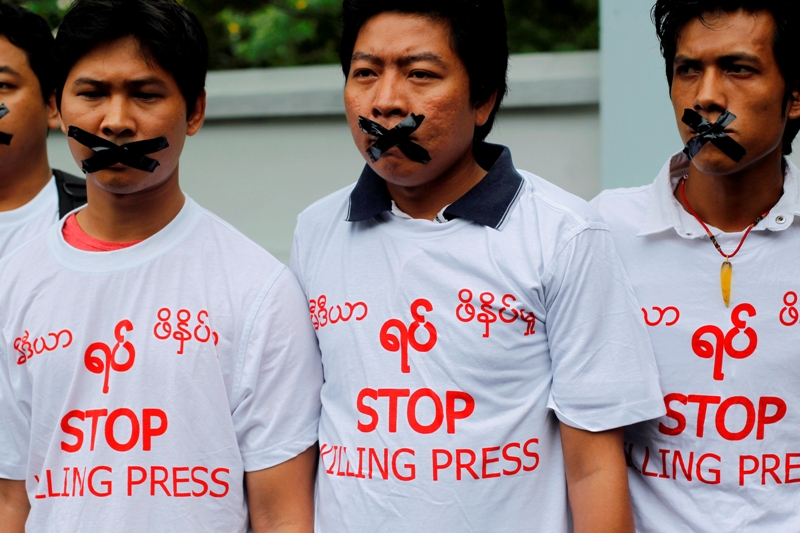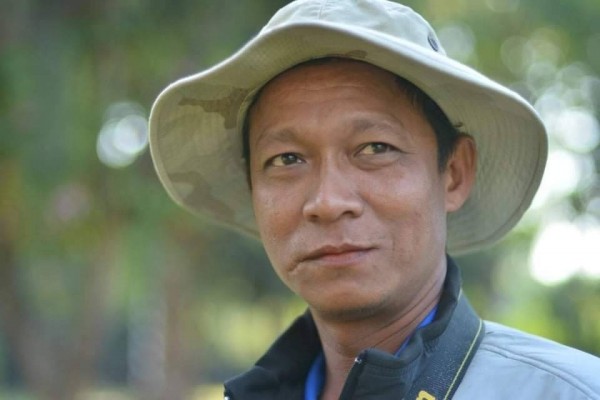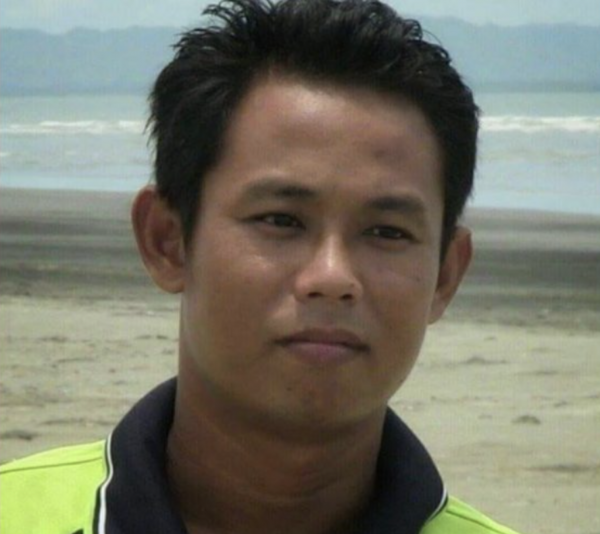The International Press Institute (IPI) today called for the immediate release of five journalists sentenced last week to spend 10 years in prison for alleged defamation and violations of Myanmar’s national security laws.
The Pakokku Township Court on Thursday sentenced four reporters and the chief executive of the Unity Journal to imprisonment at hard labour in response to a January 2014 report alleging that a vast government factory was being designed to produce chemical weapons.
The Unity Journal has since been shut down, reportedly due to costs related to organising a defence for the accused employees.
The convictions represent a major blow to reforms promised by President Thein Sein. After he took office in March 2011, the president announced sweeping reforms of press laws across Myanmar, promising a free and independent news media.
However, Thein Sein recently changed his tone concerning the news media. The New York Times reported that he said on Monday in a publicly broadcast speech: “If media freedoms are used to endanger state security rather than give benefits to the country, I want to announce that effective action will be taken under existing laws.”
IPI Senior Press Freedom Adviser Steven M. Ellis joined an international chorus of human rights and free expression watchdogs in condemning the court’s ruling.
“A fundamental step in fostering an atmosphere of press freedom is ensuring that journalists are allowed to report on matters of public interest,” he said. “These convictions and sentences represent a step backward for Myanmar, and we urge that these five journalists be released immediately.”
The five men – Unity Journal chief executive Thin San and journalists Lu Maw Naing, Yarzar Oo, Paing Thet Kyaw and Sithu Soe – were convicted under the 1923 Burma State Secrets Act, a law enacted when Myanmar was still a British colony referred to as Burma.
The report at issue quoted factory workers saying that chemical weapons were being produced at the factory, which is located on 3,000 acres of land in Pauk, a town located in Myanmar’s largest region of Magway.
The report also claimed that Chinese technicians were often seen at the factory, The New York Times reported.
Myanmar’s deputy information minister, Ye Htut, a spokesman for the president, denied allegations that the factory was producing chemical weapons.
“It is a factory producing defense materiel for the Defense Ministry, but does not make chemical weapons,” he said in a statement to Radio Free Asia.
Kyaw Lin, the lawyer for Unity Journal chief executive Tin San, said he was horrified by the conviction and that he plans to appeal.
“These people are not spies in this case,” he said in an interview with the Associated Press. “They were just reporting.”



